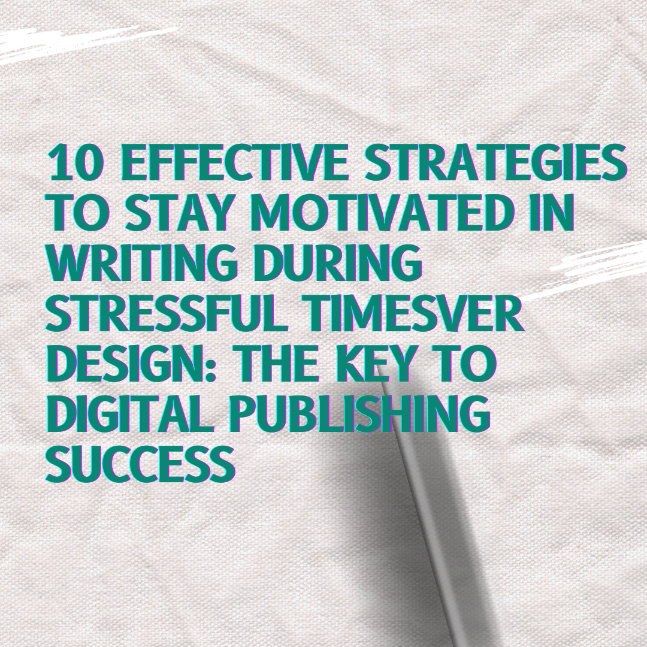#WritersBlock
Perseverance in Pages: Navigating Rejection and Encouraging the Aspiring Writer
For many aspiring authors, the dream of publishing a manuscript often collides with the harsh reality of rejection from publishing houses. This experience can be incredibly disheartening, casting a shadow of doubt over one’s creative abilities and aspirations. However, it’s essential to recognize that rejection is a common, even necessary, part of the writing journey. This article delves into the world of manuscript rejections and offers guidance and encouragement for writers facing this challenge.
Understanding the Nature of Rejection
Rejection is an inherent aspect of the literary world. Many now-celebrated authors faced numerous rejections before achieving success. J.K. Rowling's "Harry Potter," for example, was turned down by multiple publishers before finding a home. Understanding that rejection is not a reflection of one's worth as a writer is crucial. Publishers reject manuscripts for various reasons, often unrelated to the manuscript's quality - market trends, publishing house capacity, and editorial preferences play significant roles.
Strategies for Dealing with Rejection
Embrace Feedback: If feedback accompanies a rejection, view it as a valuable tool for improvement. Critique can provide insights into your writing that you might have missed.
Diversify Submissions: Don’t put all your hopes into one publisher. Submit your manuscript to various publishers to increase your chances of acceptance.
Stay Informed: Keep abreast of market trends and publishers’ preferences. A manuscript might be rejected simply because it doesn’t align with current trends or a publisher's focus.
Join Writing Communities: Engage with other writers who can provide support, advice, and constructive criticism. Understanding that others face similar challenges can be comforting and enlightening.
Keep Writing: Use the time during the submission process to start or continue other projects. This keeps your creative juices flowing and improves your craft.
Maintaining Motivation and Perspective
Set Realistic Expectations: Understand that rejection is common and does not equate to failure. It's a step in the process.
Celebrate Small Achievements: Whether it's completing a chapter or receiving constructive feedback, acknowledge and celebrate these milestones.
Remember Your Passion: Reconnect with the reason you started writing. Let your love for storytelling be the fuel that keeps you going.
Consider Alternative Publishing Routes: If traditional publishing doesn’t work out, explore self-publishing or digital platforms. These avenues offer more control and can be equally rewarding.
Stay Positive and Resilient: Cultivate a positive mindset. Believe in your work and your ability to improve it.
Facing rejection from publishing houses is a daunting aspect of an author’s journey, but it’s not the end of the road. By understanding the nature of rejection, employing strategies to cope with it, and maintaining motivation, aspiring writers can navigate these challenges. It’s important to remember that each rejection brings you one step closer to the right publisher who will see the value in your work. Keep writing, keep improving, and above all, keep believing in your story.
Ways to Find Motivation to Keep Writing When Feeling Stressed or Overwhelmed
Writing, while a fulfilling creative pursuit, can often become challenging, especially when stress or overwhelm set in. Whether you're a novelist, a blogger, or a student working on an assignment, finding the motivation to keep writing under these circumstances is crucial. Here are several strategies to help you maintain your writing momentum even when the going gets tough.
1. Set Realistic Goals
- Break Down Tasks: Large writing projects can seem daunting. Break them into smaller, manageable tasks. This makes the process less overwhelming and provides a clear roadmap.
- Set Achievable Targets: Aim for realistic word counts or time limits. It's more motivating to hit a modest target than to fall short of an ambitious one.
2. Create a Comfortable Writing Environment
- Choose a Quiet Space: Find a place where distractions are minimal. A calm environment can significantly reduce stress levels.
- Personalize Your Space: Make your writing area inviting. A comfortable chair, a favorite mug, or a plant can make a big difference in your comfort and motivation.
3. Establish a Routine
- Fixed Writing Times: Set aside specific times for writing. Consistency can breed habit, making it easier to start each day.
- Warm-Up Rituals: Begin with a ritual, like a cup of tea or reading a favorite poem. This can signal to your brain that it's time to write.
4. Take Regular Breaks
- The Pomodoro Technique: Work for 25 minutes, then take a 5-minute break. This can boost focus and prevent burnout.
- Physical Activity: Short walks or stretches can rejuvenate your mind and body.
5. Practice Mindfulness and Stress-Relief Techniques
- Meditation and Breathing Exercises: These can help in managing stress and clearing your mind, providing a fresh perspective on your writing.
- Journaling: Writing about your feelings can be a cathartic experience and reduce the emotional burden.
6. Connect with Others
- Writing Groups: Joining a writing group or community can provide support, motivation, and accountability.
- Feedback Sessions: Sharing your work with trusted peers can offer new insights and boost your morale.
7. Remember Your ‘Why’
- Revisit Your Goals: Remind yourself why you started writing in the first place. This can reignite your passion.
- Visualize Success: Imagine the satisfaction of completing your project. This visual can be a powerful motivator.
8. Limit Perfectionism
- Accept Imperfection: Understand that first drafts are rarely perfect. Allow yourself to write badly at first, knowing you can edit later.
- Set Time Limits: Limit the time spent on each section to prevent overthinking.
9. Use Positive Reinforcement
- Reward Yourself: Set up a reward system for meeting small goals. It could be as simple as a snack or a break to watch a favorite show.
- Positive Affirmations: Use positive self-talk to boost confidence and reduce self-criticism.
10. Stay Inspired
- Read Regularly: Reading can provide inspiration and new ideas.
- Explore Different Genres: Sometimes, switching up what you're writing can rekindle your interest and creativity.
Finding motivation to write during stressful times is about understanding what works for you. It’s a personal journey of discovering how to balance discipline with self-care, and ambition with realistic expectations. Remember, every writer faces these challenges, and overcoming them is part of your growth and success story as a writer. Keep experimenting with these strategies until you find the mix that keeps the words flowing, even on the toughest days.



